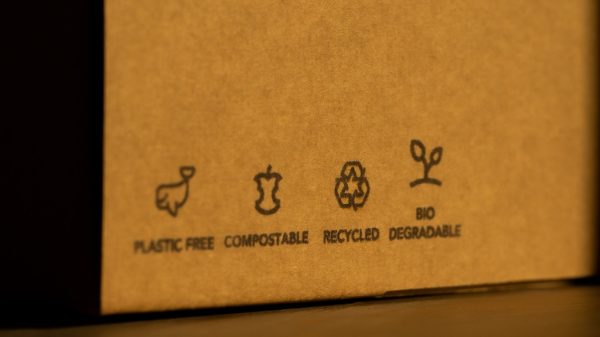Keeping states from enacting Internet taxes
The inclusion of the Internet Tax Freedom Act (ITFA) in the Trade Facilitation and Trade Enforcement Act of 2015 had shown some promise when we reported on this critical moratorium a few weeks ago. The intent of the Internet-related legislation is to keep states from enacting new taxes on Internet access.
![]()
However, the Senate removed the supporting language from the trade bill and included it instead in the omnibus spending package that passed both the House and Senate on December 18, 2015.
Senate proposing tax for online retailers
The moratorium on new taxes for Internet access has been extended until October 2016. While the White House has shown support for the legislation, through the President’s repeated statements in support of net neutrality, it’s the Senate that is prolonging the stopgap. Specifically, U.S. Senator Lamar Alexander (R – Tenn.), who also wants a vote on the Marketplace Fairness Act, of which he is the lead co-sponsor.
The Act would give states the option to tax “remote businesses” i.e. online retailers selling within states’ borders.
Interestingly enough, the White House has been in favor of Alexander’s legislation, with an endorsement via former White House press secretary Jay Carney as reported by The Hill in this 2013 article. Carney spoke then on “the need for federal legislation to level the playing field for our businesses and address sales tax fairness.”
Leveling the playing field
The debate stems from the impact to various parties from consumers to retailers. The legislators in support of a remote business tax have stated that the law will create a level playing field for brick and mortar retailers, providing much needed revenue to states in need.
The opposing view believes that consumers will bear the cost through discriminatory taxes at the state and local levels.
Taxing your Netflix-binge habit
The concern about discriminatory taxes seems well-founded with Chicago’s July 1, 2015 creation of the 9% “amusement tax” that affects entertainment both in person and electronic delivery. Charges are required to be paid for the privileges of “watching electronically delivered television shows, movies or video,” as well as “listening to electronically delivered music” and “participating in games, online or otherwise.”
The code states that the amusement tax applies only to rentals, and not “permanent” downloads. This local ordinance mostly impacts streaming online services including iTunes, Netflix and Hulu.
Amazon calls for streaming tax
Interestingly, online sales giant Amazon has long supported this legislation as evidenced by this 2013 article from The Hill, stating that “Amazon argues that a single national framework for tax collection is preferable to a patchwork of state laws.” Amazon’s greatest online rivals including eBay and Overstock who don’t have a physical presence in the number of states that Amazon does.
Amazon has been collecting sales taxes in those states where they have a physical presence, including Illinois as of February 1, 2015, and Michigan on October 1, 2015.
On an intriguing side note, former Obama administration press secretary Jay Carney was hired by Amazon in February of 2015 as senior vice president of global corporate affairs.
His position includes oversight of public policy and public relations.
Streaming tax goes largely unreported in state returns
In states that require state income tax returns, consumers have been required to self-report that tax. According to this Detroit Free Press article, Michigan state officials estimated that “only 2.5% of what was really due” was reported for untaxed online purchases in the 2013 tax returns.
States’ rights vs. Net neutrality
Whether Senator Alexander holds true to his principles of the past or will sacrifice net neutrality for states’ rights will play out over the next ten months. Keep in mind that Alexander stated in these remarks from November 7, 2003, on the Internet Tax Moratorium of “no taxation of Internet access” and that “virtually all of us are willing to keep state and local governments from taxing Internet access.“
Many economists are skeptical, and even accusing Alexander as well as Senate Democrat whip Dick Durbin of holding the ITFA hostage for the sake of their own agendas. National Review economist Stephen Moore pointed out the hypocrisy of some of Durbin’s statements in his article. “… Now the man who says the Internet should be universally available and affordable hypocritically wants to tax it to make it less affordable. The primary victims, if Senator Durbin’s eleventh-hour tax gambit succeeds, will be poor households…”
Indeed, having access to the Internet has moved well beyond being a luxury to being a convenience for all users, regardless of their income and tax bracket.
#InternetTaxFreedomAct
Debbie Cerda is a seasoned writer and consultant, running Debra Cerda Consulting as well as handling business development at data-driven app development company, Blue Treble Solutions. She's a proud and active member of Austin Film Critics Association and the American Homebrewers Association, and Outreach Director for science fiction film festival, Other Worlds Austin. She has been very involved in the tech scene in Austin for over 15 years, so whether you meet her at Sundance Film Festival, SXSWi, Austin Women in Technology, or BASHH, she'll have a connection or idea to help you achieve business success. At the very least, she can recommend a film to watch and a great local craft beer to drink.












































Anakai
February 29, 2016 at 7:57 pm
I guess that Constitution thingy that all those guys like to love on so much suddenly becomes irrelevant when it comes to picking your pocket.
Section 1, Article 9.5:
“No tax or duty shall be laid on Articles exported from any State.”
Reading is evidently not a required skill for electing people to positions of authority that control millions of people.